In celebration of Women’s History Month, we’re highlighting the incredible women of Lund Opsahl who continuously redefine what it means to be in this industry. We spoke to Amy Kuo, Lund Opsahl Associate who is currently spearheading our King County Metro Transit South Annex Base project. Thinking back on her 12 years in this industry, she shares what it means to be in a woman in this industry and her career journey, finding her passion for structures in a background of architecture and reflecting fondly on those first nervous experiences as a young engineer.
Why did you go into structural engineering?
When I thought about what I wanted to do in college, I looked for something that mirrored both of my main interests, which was art and design, as well as math and science, and I was also really interested in buildings. Those interests led me to do architecture in college, which was what I thought I was going to do for a while.
While I was in grad school, I wanted to learn all I could to be a better designer, so I decided to do a dual masters with both architecture and structure. I started doing all these classes initially to be a better designer, but as I got to my last year of grad school, I realized that being a head architectural designer wasn’t really where my strengths and interests were.
I wanted to be that right-hand person that helps with detailing and figuring out how stuff works. I realized that I could do that from the structural or the architectural side and that really opened me up to looking for both options when I was graduating. The job I ended up with was a structural engineering job, and I’m actually really happy that I did because it’s allowed me to work on a lot of different projects with a lot of different architects and styles.
What is the best part about being a structural engineer?
I think the best part about being a structural engineer is knowing that you have helped make something that other people are using or occupying. It’s really cool to be able to go visit things I helped create however small my part was.
What does being a woman in engineering mean to you?
Day to day, I don’t really think about being a woman in engineering, and I think that’s how you should approach it. Ideally, it shouldn’t make a difference, but it does.
When you’re in school, the male to female ratio in classes was a lot more even, and when you get out into the industry it’s a little more balanced, at least in the beginning. By the time you get into coordination meetings or on the construction site, there are times where you’re one of the only women or one of few women in the room.
I also think it’s great having a diversity of different perspectives and strengths in a room which is something that we should continue to strive for. There are some projects that are a lot more diverse, and it feels a lot more reflective of the world.
I do think one of the problems in the industry, no matter who you are, is that there’s a subconscious “thing” where people prefer others who are like themselves, whether it’s physical or personality wise. Sometimes subconsciously, I connect with women engineers more than the men, and that makes me wonder, “is there a subconscious preference of that I’m also guilty of?” I always try to be aware of that myself.
Day to day, I don’t really think about being a woman in engineering, and I think that’s how you should approach it. Ideally, it shouldn’t make a difference, but it does.
What in your career are you most proud of?
I’m most proud of my personal growth throughout the years both technically, like what I’ve learned engineering wise, but also in the non-technically, like all the other things we do for coordination management and collaboration with teams I’ve been on and what we were able to do together. When I compare where I am and what I can do now compared to when I started, that’s what I’m most proud of.
At year end evaluations, when I have to ask myself, “what did I do this past year?” I actually did a lot more than I thought. Even on a smaller scale—making phone calls was something I was really anxious about when I first started my career. I still remember the first time I had an external phone call talking to a contractor or someone similar, and I was so nervous about it. Now, I don’t really hesitate.
And from a technical standpoint, at the beginning, I was so uncertain about how to do certain things. Now, I’m a lot less nervous about my approach, and I have more confidence in myself. Now, instead of thinking I might not be able to solve something at all if I don’t know, I can think of how I can work to make my approach better, and that’s something I learned over years of experience.
It’s also a good reminder working with newer engineers—where I started is where they are. Younger engineers may have the same apprehension, so that’s good to reflect back on.
Favorite Lund Opsahl project?
South Annex Base is probably my favorite. It allows me to play to my strengths because it is such a big project with a lot of people involved, both internally and externally, which requires a lot of coordination, planning, and managing.
And that’s kind of where my strengths are. Even though this project type is completely new to me, I’m still able to apply my skills and strengths that I cultivated before Lund Opsahl.
If you could have one superpower, what would it be?
Teleportation.
What is your superpower?
I am super detail-oriented and meticulous about that stuff. I think it helps me think through things that maybe others might have missed, especially when we’re talking about coordinating with other teams and thinking how this structural change will affect other disciplines.
Favorite Seattle activity?
I love walking around in the city, going to different places, seeing both the built environment and all the parks scattered throughout the city. Seattle is great because there’s such a variety of landscapes within the city itself.

